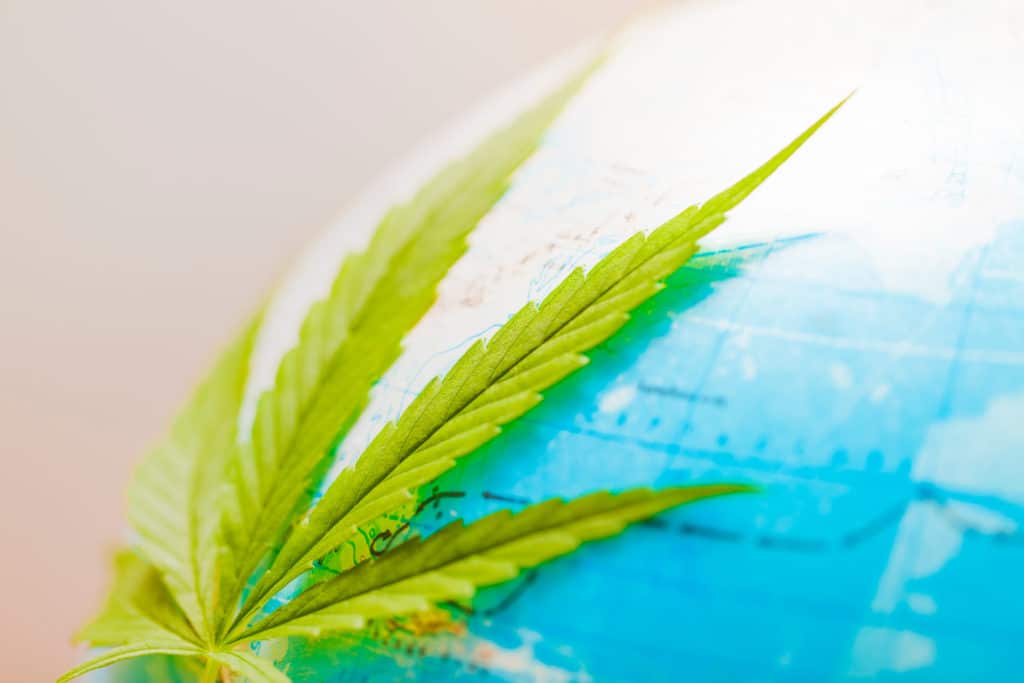Hemp
3 Ways Hemp Can Help the Planet
Hemp has received a lot of attention recently thanks to its ability to produce the buzz-worthy compound, CBD, but that isn’t the only thing hemp is good for. It actually has the potential to do a lot of good for the planet by offering environmentally-friendly alternatives to everyday products, among other things. Keep on reading to learn 3 ways hemp can help the planet.

1) It Can Help Clean The Earth
You heard that right, hemp can actually help clean the Earth, well, the Earth’s soil. It can do this through a process called phytoremediation or bioremediation. What this means is that the plant can absorb whatever is into the soil into its tissues. Throughout the years, multiple studies have been done to demonstrate hemp’s phytoremediation capabilities. One study, done in the 1990s, tested hemp’s ability to remove heavy metals from fields near Chernobyl and showed promising results. These results were later confirmed by a group of German scientists, who found that hemp was able to absorb lead, cadmium, and nickel from a contaminated plot of land. Since then, there have been numerous studies further examining hemp cleaning capabilities. That being said, we do not have definitive results regarding where exactly the plant stores contaminants, so we wouldn’t expect to consume Chernobyl CBD any time soon. Though, there’s still potential to produce other products like plastics or textiles, meaning the biomass produced by these plants wouldn’t go to waste. Really, it’s a win-win situation. Farmers are able to improve their soil, while also producing a sellable product.
2) It’s a Potential Alternative to Unsustainable Products.
Did you know that hemp has been cultivated around the world for centuries? In fact, hemp has played quite a role in creating the world as we know it. It’s believed to be one of the earliest agricultural crops and was used for many important products, like boat sails, food, clothing, and rope. As one of the strongest natural fibers in the world, hemp was the natural choice for sailors looking for sails that would be able to handle their long voyages. In fact, the word canvas (the material typically used to make boat sales) comes from the word cannabis.
At this point in time, most ships are powered by motors but that doesn’t mean hemp is no longer useful. Like we motioned before, hemp can be used to produce clothing, meaning it offers an alternative to cotton or polyester-based goods. Actually, cotton requires about twice the amount of water than hemp to grow and process. On top of that, farmers can produce 3x the amount of hemp fiber than cotton on the same amount of land. Hemp is also a very resilient plant, meaning it can generally withstand pests and weeds and does not require the use of harmful pesticides or herbicides, like cotton which accounts for about 17% of the world’s pesticide use. Pesticides have been linked to health issues as well as environmental issues like contaminated waterways and depleted soil fertility.
Hemp also offers a biodegradable alternative to polymer-based plastics, which never completely break down. Right now, it’s estimated that 8 million pieces of plastic enter the ocean each day. In the North Pacific, there is a patch of garbage that’s estimated to be twice the size of France. There are even portions of the ocean that are no longer able to sustain life. That’s a lot of plastic and to think, it will never go away! A plastic bottle can last for 450 years in the ocean, breaking down into smaller and smaller pieces over time until it’s ultimately microscopic. These tiny pieces of plastic end up in the stomach of fish or other sea creatures, throwing off the entire ocean ecosystem.
3) It Could Reduce Our Dependence on Fossil Fuels
About 60% of the United States’ energy is produced by fossil fuels, which could potentially be replaced by hemp-based biofuel. Fossil fuels, like gasoline, coal, and natural gas, release carbon dioxide into the atmosphere when combusted. These carbon emissions trap heat in the atmosphere and ultimately contribute to climate change. Beyond that, fossil fuels emit toxic pollutants, like Benzene and formaldehyde, even before they’re utilized. These compounds have been linked to health issues like cancer as well as blood disorders. The process to obtain these materials can also be quite dangerous, leaving miners with life-long health issues. The mining process can also disrupt critical wildlife habitats and leach toxic chemicals into waterways.
Hemp biofuel is a bit unique in that biodiesel can be made from hemp seed oil while ethanol or methanol can be made using the rest of the plant. When you consider the fact that hemp absorbs CO2 from the atmosphere through photosynthesis, cleans the soil, and can grow with minimal water, it sounds like a miracle crop… and it really just might be. There’s just one catch, the infrastructure to produce hemp biofuel on a large scale is not yet established. However, this is likely to change with increased calls from environmental scientists to move away from fossil fuels.
Really, almost anything made of wood, cotton, or plastic can be made out of hemp, with greatly reduced environmental implications. This lucrative cash crop can be grown almost anywhere and as researchers release more of their findings, it’s starting to become even more apparent that hemp has the power to heal the world.



